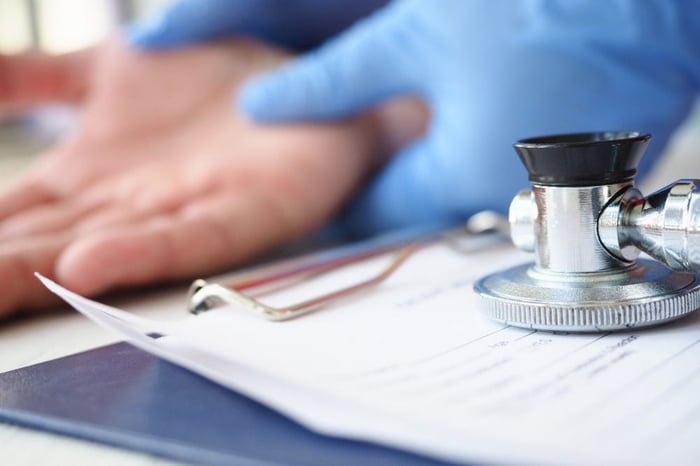
When to start personal statement for medicine?
Let’s talk about the dreaded personal statement. In four thousand characters (or the equivalent of 47 lines), you are expected to explain in detail why you’re interested in the course you’re applying to study, profess your love for medicine and show your willingness to dedicate your life to the cause.
How exactly do you fit in your reasons for pursuing a career in medicine, your achievements, work experience anecdotes AND still demonstrate that you have a life outside of medicine? This is certainly not an easy task and one that leaves many aspiring medical students pulling their hair out, but stress not, because theMSAG is here to help.
We will be covering all of this and more in a series of blog posts dedicated to the successful writing of your personal statement, but for now, we will focus on the first question that is probably crossing your mind - when should you actually start writing your personal statement? Carry on reading for some tips not only on when the best time to start your literary masterpiece is, but also how best to start it.

Ready-set-write
When should you start drafting your statement? Most people start writing theirs during the summer holidays before the deadline, as there’s not much distraction from studies but in reality, you can start any time you want. There is however, something to be said about starting too late or too early.
Keep in mind that with the approach of the medical school application deadline, there will be other things on your mind, such as sitting the entrance exam of your choice, chasing teachers or tutors to submit your grades and write you a reference, and of course, the most challenging task of all - picking the schools you’d like to apply to. On top of that (unless a gap year student), you are likely to be entering your final year of school or university, which adds on further stress to keep your academic performance high while checking all these things off. Therefore, it is not the best idea to leave your personal statement to the last moment, and giving yourself at least a few weeks to a month before school starts is a good buffer for any changes you want to make later on.
While not as problematic as starting too late, starting too early can also be tricky. It is natural that you will want your personal statement to be perfect and you will likely be anxious to reread and correct it every chance you get. Starting too early might end up causing you to do just that and ultimately costing you too much time. Another point to make is that students typically take some weeks in work experience or volunteering throughout their last summer before the application deadline, which is a huge opportunity to develop your skills and include in your personal statement. Writing your statement way before this will cost you the chance of including these in it or require you to rewrite it a new. So while you have the freedom to fit the writing of your personal statement at any stage of your application, keep these factors into consideration when deciding on a timeline.
Okay, but what about how to start your personal statement? Rather than sitting down and writing a whole statement from the word Go, I’ve found that it’s easier to jot down my thoughts on certain things I encountered throughout the year, which I could then put together when writing my personal statement.
For example, I kept a log during work experience of what I did and wrote a short sentence or two on what I found interesting. Then when it came to drafting my personal statement, I already had a topic complete with a few lines, which I could work into the statement. Aside from your work experience, you can also jot notes about:
- Books or articles that you have read
- Part-time jobs
- Moments which made you realise that you want to pursue medicine
- Achievements in other areas of your life, for example in sport or music
- Experiences during summer schools or volunteering
By doing this consistently, you’ll find that you have a number of relevant topics which you can include in your personal statement with a little bit of further development.
The trick is if it made you think, write it down. In reality, this is the basis of what is known as “reflective practice” and is an important part of modern medicine. And now also a useful thing for preparing material for your personal statement.

A game of drafts
If you’re like me, you’ll go through a lot of drafts. Personally, mine had more than 10 drafts . I especially struggled with it, because I expected from myself to write a complete draft in one sitting. This meant that I got stuck right at the opening of my statement, expecting it to be perfect before I could move on to the next section. However, I quickly learnt that if I just put any opening line down and ignored it until the end, the whole statement was a lot easier to write. I also found that instead of trying to plan a statement right away, it was easier to look at all my experiences and develop those into full paragraphs that I could build into a statement. This strategy will also help you avoid overused opening sentences, as you’ll be better equipped to assess what opening works for you and the tone of your statement once you have a bigger chunk of it written down. This is a trap many students fall in that doesn’t win many admissions tutors over, so be wise and write your opening last.
The most important thing to remember is that writing your personal statement will not come quickly and so it’s important to start early and to take this into account.
Don’t forget that your UCAS personal statement deadline (together with the remainder of your UCAS application) is October 15th.
The school influence
Speaking of deadlines, make sure you’ve checked whether your school or college has an internal deadline for personal statements. Some teachers or career advisors may want to have a look at your personal statement and give you some advice about it. You can also use these internal deadlines when it comes to starting your personal statement, as some schools also expect students to submit the first draft of their personal statement, usually at the end of year 12 or at the very start of year 13. For international students or graduates, the rules may vary slightly or there may be none such at all - if this is not the case for you, then don’t worry; with a little bit of planning and organising, you can have a draft ready with plenty of time to spare.
Don’t forget that you can always ask your teachers or career advisors for help with your personal statement by having them have a read through your drafts.
How can we help?
If you have written a draft, then we recommend you email it to us for our reviewing service. Our team, who has reviewed thousands of personal statements, will review it with detailed comments, track changes and marking. Each statement is also reviewed by a second doctor/team member for completeness. If you are struggling to get a draft ready or need further assistance, we have a personal statement tutoring service where we help get the process going. Good luck!



